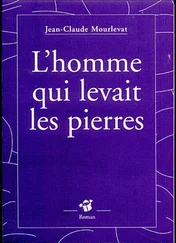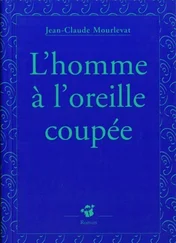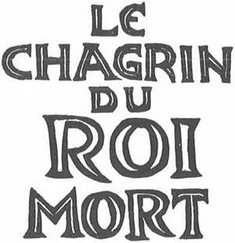Jean-Claude Mourlevat - Winter's End
Здесь есть возможность читать онлайн «Jean-Claude Mourlevat - Winter's End» весь текст электронной книги совершенно бесплатно (целиком полную версию без сокращений). В некоторых случаях можно слушать аудио, скачать через торрент в формате fb2 и присутствует краткое содержание. Год выпуска: 2010, ISBN: 2010, Издательство: Candlewick, Жанр: Старинная литература, на английском языке. Описание произведения, (предисловие) а так же отзывы посетителей доступны на портале библиотеки ЛибКат.
- Название:Winter's End
- Автор:
- Издательство:Candlewick
- Жанр:
- Год:2010
- ISBN:9780763651749
- Рейтинг книги:5 / 5. Голосов: 1
-
Избранное:Добавить в избранное
- Отзывы:
-
Ваша оценка:
- 100
- 1
- 2
- 3
- 4
- 5
Winter's End: краткое содержание, описание и аннотация
Предлагаем к чтению аннотацию, описание, краткое содержание или предисловие (зависит от того, что написал сам автор книги «Winter's End»). Если вы не нашли необходимую информацию о книге — напишите в комментариях, мы постараемся отыскать её.
Winter's End — читать онлайн бесплатно полную книгу (весь текст) целиком
Ниже представлен текст книги, разбитый по страницам. Система сохранения места последней прочитанной страницы, позволяет с удобством читать онлайн бесплатно книгу «Winter's End», без необходимости каждый раз заново искать на чём Вы остановились. Поставьте закладку, и сможете в любой момент перейти на страницу, на которой закончили чтение.
Интервал:
Закладка:
“Milos . . .” murmured Bartolomeo.
“Oh, Helen!” cried Milena.
And with their heads close together, they mingled their silent tears.
Gerlinda’s frightened voice came up to them from below. She had stayed behind alone in the dark corridor. “Is there anything up there? Hey! Is there anything there?”

It seemed as if winter would never end that year. In the middle of March there were a few faintly springlike days, but then the cold returned. Deep snow fell again, as if Nature couldn’t shake off her covering of ice and frost. She might stretch and shift, but she always fell back under it, exhausted, frozen, defeated.
Helen spent a long time shut in her little room at Jahn’s Restaurant, coming out only for her shifts, doing her work like a robot. Milena and Dora, the only people she would see, did all they could to make her eat a little, forced her to talk, to wash and brush her hair. Twice they managed to take her for a walk beside the river.
At last, one afternoon, she said she wanted to go with Bartolomeo to see Basil in the hospital. The young horse-man’s wound had turned out to be much worse than it seemed at first, and he had a perforated stomach, which caused him great pain. The hospital was on the hills, in a park planted with larch trees. Basil, looking sad and thin, was lying in a white room that didn’t seem the place for him at all. On this first visit Helen just listened to the two young men talking.
“Do you need anything?” Bart asked.
“Yes,” said Basil, fretfully. “I’d like to be able to eat real food — by mouth.”
As they left, Helen hugged him and told him she’d be back. She was good to her word and visited every day, first with Bartolomeo and then alone until Basil was discharged.
She had to go through the city to get to the hospital, and she took the tram to its terminus. The cheerfulness of the other passengers passed her by, but the final fall of the Phalange and the return of freedom had brought new light to their faces. Helen couldn’t understand it. What do all these people have to smile about? she asked herself. Don’t they know my love is dead? Then she walked through the park with her head bent to reach the hospital, where everyone came to know and greet her.
First she asked Basil about the boarding school. She got him to tell her about his first meeting with Milos the day when he gave Bart the letter and it all began. “Was it a fine evening?” she asked. “Or was it raining? What was Milos wearing?” Then she wanted to know about the training camp. What exactly did they eat there? Who shaved their heads? Who was the man he called Fulgur? Did they train barefoot or in sandals? Basil had to tell her every detail and was impressed by the attention she paid. No one else had ever listened to him so intently before. He frowned with concentration as he tried to remember everything.
“Did Milos . . . did he ever talk to you about me?” she ventured to ask one day.
Basil might not be very clever, but his heart told him what to say. “You bet he did! Couldn’t stop!”
“Oh — what did he say?”
“Well . . . all sorts of things. Said you were very pretty.”
“What else?”
“All sorts of things, like I said. For instance . . . oh, I dunno . . . said you were very good at climbing ropes.”
And in this way, as the days and their conversations went on, they came to that last morning, the morning of the fights in the arena. First Basil told her about his own. He did so without much emotion until he had to describe the moment when he gave his opponent the death blow, at which point he unexpectedly burst into huge sobs.
“He — he wanted to kill me, see?” he stammered. “I didn’t want to die. Wanted to live.”
Helen bent over and stroked his forehead. “Don’t cry, Basil. You were only defending yourself — you know you were. It wasn’t your fault.”
“I know, but we horse-men, we don’t like killing folks.”
She left it there for that afternoon, but as soon as she was at his bedside the next day, she began again. “Basil, tell me about Milos, please. I mean his last day in the arena. Tell me all you can about it. I need to know.”
For once the young horse-man began at the end. “It was Caius who killed him,” he said gravely. “I’m sure it was. He thought Milos was a cat.”
“A cat?”
Basil told her about Caius and his murderous insanity, and he went on to describe Milos’s fight with the old gladiator. Fascinated, Helen listened. Every word she heard was transformed into pictures of Milos alive. She clung to them with all her heart.
“Did you see it yourself?” she asked when Basil had finished. “He really spared his opponent?”
“Yes, I saw from behind the gate. I was just back from the infirmary. Fulgur had been sewing me up. Milos almost lay down on top of the guy; they talked, then Milos took his sword away. You have to be brave to do a thing like that! Then there was the battering ram at the gate, and after that it was all chaotic. I didn’t see him again, and my stomachache was terrible. I wonder what he was doing there at the end of the corridor — Milos, I mean. Everyone was running for it, and he went back. . . . Maybe he was looking for me.”
Helen nodded.
“I’m sure that was it, Basil. He was looking for you. You deserved it.”
As May approached, winter finally retreated. The sky was full of migrant birds returning, and the sun came out, warming everyone. Helen felt the claws of grief that clutched her heart relax their hold slightly. She went out more, caught herself laughing at Dora’s amusing remarks and the jokes the others made at work. Slowly her love of life was coming back with a light and hesitant touch. It felt like she was breaking out of the prison of her mourning, just as the city broke out of the ice of winter. But sometimes in a light-hearted moment she felt as if it were treachery, and the idea plunged her into grief deeper than ever.
One Sunday the city celebrated the return of freedom. In holiday mood, the capital hailed its heroes: the horse-men and the Resistance. There was dancing in the squares and on the streets all day. Every part of the city was full of music and singing. That evening a horse-drawn trailer arrived in Opera House Square, and when the tarpaulin over it was removed, Napoleon the giant pig appeared in all his glory, a monumental and astonishingly clean vision. Although applauded as a hero, he ignored his triumph, merely waggling his large ears, grunting, and snuffling around for food. He was hoisted up to a platform in the middle of the square by means of a system of lifts and straps.
People were mingling cheerfully everywhere, waving tankards in the air. Stupefied by beer and the noise, Helen was clinging to Dora’s dress. In the middle of the festive crowd she caught sight of Mitten, limping, toothless but happy, dancing for joy. He recognized her, rubbed his stomach with both hands and shouted, pointing to the pig, “Told you so! Now we’ll have a hog roast!”
A little later she was greeted by Dr. Josef, who had brought Napoleon. He must have known about Milos, for he hugged her close with his eyes bright, and said nothing.
As evening fell, microphones were put up in the courtyard of the Opera House, and a series of musicians performed there. Toward midnight, Milena stepped forward alone, wearing a blue dress that Helen had never seen before, and began to sing.
“In my basket,
In my basket, I have no cherries,
My dear prince. . . .”
Everyone fell silent. Those who were wearing hats took them off, and when the chorus came, thousands of voices joined in, raising the little tune to the sky. At first Helen’s throat felt so tight that she couldn’t utter a sound, but then she managed to sing after all:
Читать дальшеИнтервал:
Закладка:
Похожие книги на «Winter's End»
Представляем Вашему вниманию похожие книги на «Winter's End» списком для выбора. Мы отобрали схожую по названию и смыслу литературу в надежде предоставить читателям больше вариантов отыскать новые, интересные, ещё непрочитанные произведения.
Обсуждение, отзывы о книге «Winter's End» и просто собственные мнения читателей. Оставьте ваши комментарии, напишите, что Вы думаете о произведении, его смысле или главных героях. Укажите что конкретно понравилось, а что нет, и почему Вы так считаете.












